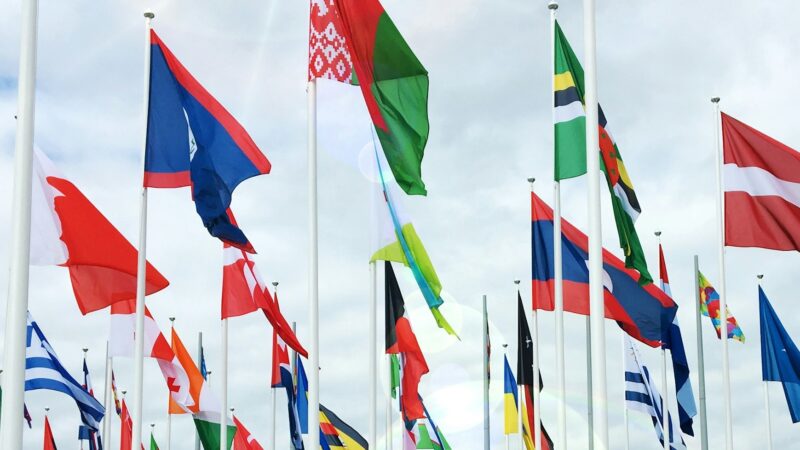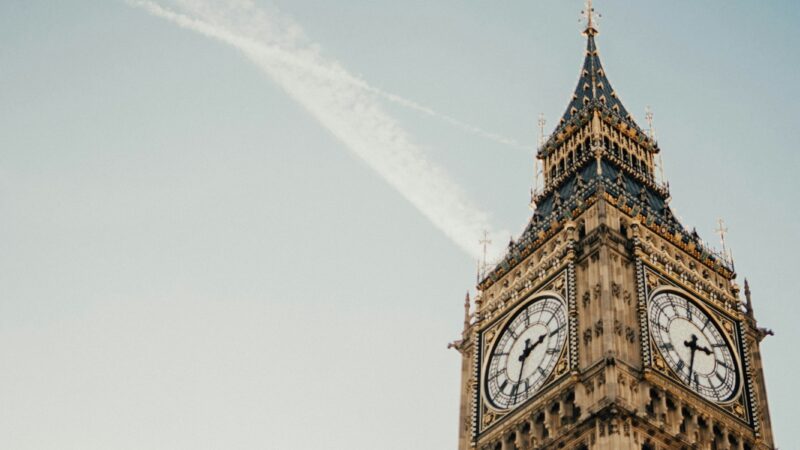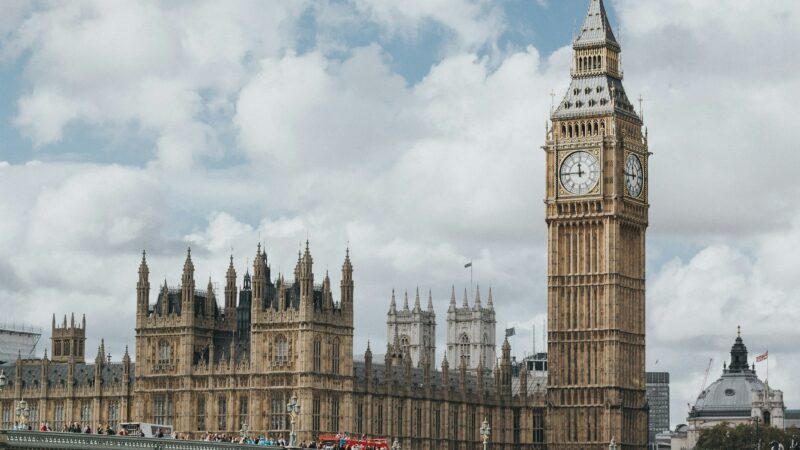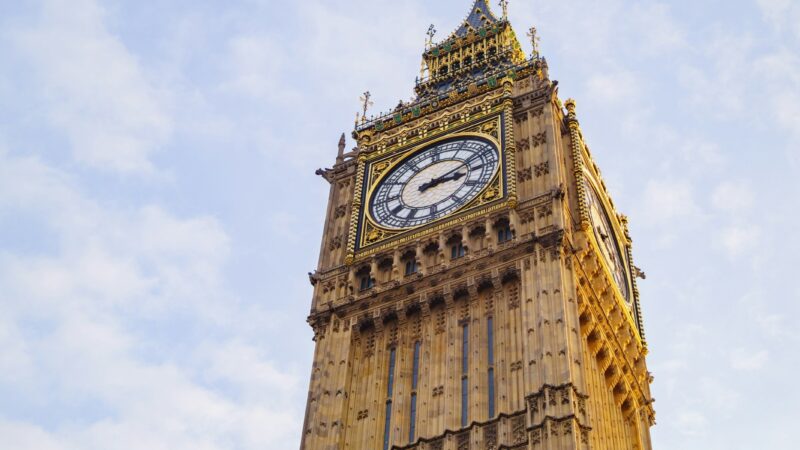Islam as Arabism
‘Here the initiative individual […] regains his place as a formative force in history. […] If he is a prophet like Mohammed, wise in the means of inspiring men, his words may raise a poor and disadvantaged people to unpremeditated ambitions and surprising power.’
– Will and Ariel Durant, The Lessons of History
That Islam is a sociopolitical ideology as well as a religion hardly requires demonstration. It included a political component from its very inception, since tradition has it that Muhammad was the Muslims’ worldly ruler as well as their spiritual leader. The caliphs succeeded him (‘caliph’ means ‘successor’) in that capacity: they, too, were political and religious rulers in one. If the caliphate had not been abolished in 1924, non-Muslims would likely be much less blind to Islam’s political side.
This political side is too rarely acknowledged. However, even less attention has been paid to the ethnic aspect of Islam’s politics. Hardly any commentators seem to mention the undercurrent of Arabism present in the Mohammedan creed – yet once one has noticed it, it is impossible to ignore. Islam is not just any ideology; it is a vehicle of Arab imperialism.
Some readers may not readily see any such ethnic element, but others will likely find it obvious. In Algeria, for instance, Islam is widely taken to be a facet of ‘Arabdom,’ which is why proud Berbers tend not to be passionate Muslims. It is not just non-Arabs who believe that Islam and Arabdom are intimately linked. Consider that Tunisia’s ‘Arab Muslim’ character is mentioned in the preamble to the country’s constitution. Likewise, Morocco’s constitution states that Moroccan national identity is ‘forged by the convergence of its Arab-Islamic, Amazigh and Saharan-Hassanic components.’ Such language underscores the essential connection between Arab identity and Islam. What follows is a brief overview of some aspects of this connection.
The Traditions
The traditional accounts of Islam’s early history, including the hadith, contain plenty of naked Arabism. In this context, we can largely set aside the question of whether these accounts are reliable. For the most part, it scarcely matters whether the traditions are true or fabricated; it only matters that they are believed.
Perhaps the most infamous racist hadith is the one in which Muhammad describes black people as seeming to have raisins for heads. The saying in question is Number 256 in Book 89 of volume nine of Bukhari’s anthology: ‘You should listen to and obey[…] your ruler even if he was an Ethiopian (black) slave whose head looks like a raisin.’
Some Muslims try to divert attention from the questionable physical description and onto the statement’s supposed egalitarianism. They claim this passage expresses a progressive sentiment that people of any race could be worthy rulers. However, one should bear in mind the context: the next two hadiths likewise extol obedience to rulers. For example, Number 257 has Muhammad say: ‘A Muslim has to listen to and obey (the order of his ruler) whether he likes it or not, as long as his orders involve not one in disobedience (to Allah).’ The common theme in these stories is the requirement to submit to those in power. Against this backdrop, the hypothetical Ethiopian ruler is clearly mentioned in order to emphasise how absolute this duty is: it applies even if the ruler belongs to an inferior ethnic group. Similar examples of racism in the hadith and other Islamic sources are listed by Isaac Marshall.
As Robert Spencer shows in Did Muhammad Exist?, early Arab politics under the Abbasid dynasty was marked by references to Muhammad’s example to promote various causes, notably including ‘the rapid expansion of the Arab Empire.’ This sometimes included strong ethnic undertones. As Spencer notes, Muhammad was reported to have said that Muslims would conquer ‘the palaces of the pale men in the lands of the Byzantines’ and to have announced: ‘the Greeks will stand before the brown men (the Arabs) in troops in white garments and with shorn heads, being forced to do all that they are ordered.’ Why mention the Byzantines’ lighter complexion? Presumably, this served to underscore their ethnic distinctness (non-Arabness) and, by implication, their inferiority. As for the second quote, it clearly portrays Muhammad as having wished for the Arabs specifically, rather than Muslims of any ethnicity, to dominate the Greeks.
According to tradition, having garnered only a handful of followers in Mecca, Muhammad achieved his first major success in Yathrib (later Medina). This milestone was made possible by an ethnic conflict between Arabs and Jews in which the former deemed him useful for their cause. ‘The Arabs of Yathrib,’ explains Ali Sina in Understanding Muhammad and Muslims, ‘accepted Muhammad readily, not because of the profundity of his teachings, […] but because of their rivalry with the Jews.’ It was in Medina that Islam’s trademark Jew-hatred truly began to burgeon.
Over a millennium later, the resources of Muslims worldwide are still being drained in service to an Arab struggle against Jews in Israel – and Islam is the tool through which those resources are extracted. Of course, not everyone in the Muslim world is content with this arrangement. In Iran, which is now a mostly non-Muslim country, protestors chant: ‘Forget about Palestine, forget about Gaza, think about us.’ Likewise, the Moroccan Amazigh Democrat Party (a Berber organisation now renamed ‘Moroccan Ecologist Party – Greens’) stands for both secularism and ‘normalizing relations with Israel.’ The more a group is free from Islam, it seems, the less need it feels to sacrifice its own interests in order to help Middle Eastern Arabs re-conquer Israel.
The History
Islam’s history shows it to be, from its beginnings, fundamentally intertwined with Arab identity. In Arabs: A 3,000-Year History of Peoples, Tribes and Empires, Tim Mackintosh-Smith provides such manifold examples of this pattern that it would be plagiaristic to reproduce them all here. Drawing on Muslim historian al-Baladhuri’s description of the Arab conquests of the seventh century AD, he writes that the Taghlib, despite being Christian, were made exempt from the ‘poll-tax’ which unbelievers must pay under Islamic law. The reason was that the Taghlib were Arabs, and could thus make the case that they were different from the ‘conquered barbarians’ to whom the tax was normally applied. ‘Islam in its expansive period had as much to do with economics and ethnicity as with ethics.’ During the later centuries of Islam, other groups – most notably, the Ottomans – appear to take the lead in the Muslim world. Nevertheless, ‘the centuries of “invisibility” in fact conceal an Arab expansion almost as remarkable for its extent as the first eruption of Islam,’ though this second phase occurred ‘through the Arab world’s back door, into the Indian Ocean.’
For Mackintosh-Smith, Islam should be viewed ‘as a unifying national ideology, and Muhammad as an Arab national hero.’ It may be worthwhile to mention, in this context, the theory that Muhammad never existed and was instead a character popularised decades after his supposed death. Robert Spencer summarises the case for this position in Did Muhammad Exist?. Despite dating Islam’s emergence to the early eighth century, Spencer notes that two inscriptions from Arab-ruled lands during the second half of the seventh century refer to some watershed moment which had occurred in 622. As he states, this is the traditional date of the Hijra, when Muhammad supposedly fled from Mecca to Medina. Interestingly, one of the inscriptions was made 42 years (on the lunar calendar) after 622, yet it purports to have been written in ‘the year 42 following the Arabs.’ Why the odd phrasing? Spencer argues that, in 622, the Byzantines inflicted a heavy defeat on the Persian Empire, sending it into decline. The Arabs were quick to take advantage of the resultant ‘power vacuum’ and soon conquered Persia. Consequently, he speculates: ‘What became the date of the Hijra may have originally marked the beginning of the Arabians as a political force to be reckoned with on the global scene.’ If this idea is correct – and it certainly makes sense of the strange phrase ‘the year 42 following the Arabs’ – then the very year with which the Islamic calendar begins, 622, may originally have been commemorated in celebration of Arab military expansion. This would also make it all the more ironic for anyone conquered by Arabs, and especially Iranians, to be a Muslim.
Still, the conquest of non-Arabs by Arabs is sanctified in Islam even if one utterly rejects the thesis Spencer propounds. Since the expansion of early Islam – and much of later Islam – was inseparable from Arab expansion into surrounding territories, being Muslim practically forces one to look back with approval on the conquests of non-Arabs by Arabs. (The spread of other world religions did not involve a comparable dependence on armed subjugation.) As Raymond Ibrahim has written, ‘the historic Islamic conquests are never referred to as “conquests” in Arabic and other Muslim languages; rather, they are futuhat—literally, “openings” for the light of Islam to enter.’
Throughout Islam’s history, jihadism and Islamic expansionism have gone hand in hand with Arab supremacism. This has perhaps been most apparent in Sudan and Mauritania, where Islamism has long been inextricably linked to racism and genocide against, and enslavement of, non-Arab blacks. Serge Trifkovic makes this point powerfully in The Sword of the Prophet, highlighting the irony of black Muslims in America who consider Islam a natural part of African heritage.
In addition to the racism already found in Islamic scriptures, the slave trade which has flourished under Islamic rule and been legitimised in conjunction with jihad ideology has also spawned racialist justifications. Trifkovic comments: ‘The Muslims’ view on their two main sources of slaves, sub-Saharan Africa and Slavic Eastern Europe, developed into the tradition epitomized by a tenth-century Islamic writer:
“The people of Iraq […] are the ones who are done to a turn in the womb. They do not come out with something between blond, blanched and leprous coloring, such as the infants dropped from the wombs of the women of the Slavs and others of similar light complexion; nor are they overdone in the womb until they are […] black, murky, malodorous, stinking, and crinkly-haired, with […] deficient minds, […] such as the Ethiopians and other blacks[.]”’
Islam’s Arab Character
Despite claims of divine revelation and the notion that the Qur’an existed from the beginning of time, Islamic doctrine is wholly permeated by mediaeval Arab culture and the paganism of pre-Islamic Arabia. Thus, Samuel Zwemer notes that the belief in jinn reflects a ‘substratum of paganism.’ Nor is this belief peripheral to Islam; numerous verses in the Qur’an discuss these supposed spirits and Muhammad is claimed, writes Zwemer, to have been ‘sent to convert the Jinn to Islam as well as the Arabs.’ It is also a well-known fact that the pilgrimage to Mecca goes back to pre-Islamic paganism.
The creed’s ethical teachings, furthermore, are deeply shaped by its origins among mediaeval Arabs. In many ways, it represents an alien culture imposed on other peoples by Arab conquest. One might object that Europe is Christian and Christianity is likewise an alien influence on it, having come from the Middle East. Yet Christianity’s Middle Eastern origins have been greatly exaggerated. It is a fundamentally European religion, having arisen in the Roman Empire and been shaped by Greek philosophy from its fount. Even pre-Christian Judaism had been heavily shaped by Hellenic thought, as Martin Hengel showed in his classic Judaism and Hellenism. In any event, Christianity is far less intrusive than Islam, which seems intent on micro-managing every aspect of the believer’s life.
An obvious example of how Islam imposes alien values on the societies it conquers is the role it mandates for women. Apostate Prophet, a German-American ex-Muslim of Turkish descent, avers that ‘the Turks […] treated their women much, much better before they converted to Islam.’ Current scholarship appears to bear this notion out. One author concludes that, in pre-Islamic times, ‘Turkish women ha[d] a much more free life than women of other communities and that women within Turkish communities [during that period] can be seen as sexless and they can take part in men’s positions.’ This is obviously far different from women’s role in Islamic societies. The difference was famously demonstrated by Turkey’s Deputy Prime Minister Bülent Arınç, founding member of the ruling Islamist group, the Justice and Development Party (AKP). On the occasion of the Islamic holiday Eid al-Fitr, Arınç urged Turks to pay greater heed to the Qur’an and stated that women should ‘not laugh in public.’ If conditions in Turkey are not as bad as in other Islamic countries, where practices like female genital mutilation are common, that is in large part thanks to the secularising revolution of Kemalism.
However, to say that Islam’s ethics fully reflect the norms of pre-Islamic Arabia would be unfair to the Arabs of the time. For instance, Ali Sina argues that, ‘prior to Islam, women in Arabia were more respected and had more rights than at any time since’ (Understanding Muhammad and Muslims). Even within the context of that undeveloped region, it seems that Islamisation represented a step back.
Islam’s Arab character has serious practical consequences which work to Arabs’ relative advantage and other groups’ relative disadvantage – although, naturally, adherence to Islam represents a net disadvantage for all groups. As Hugh Fitzgerald observes, Islam makes people ‘pray five times a day in the direction of Arabia (Mecca), ideally take Arab names, read the Qur’an in Arabic, and sometimes even construct a false Arab ancestry (as the “Sayeeds” of Pakistan).’ The requirement to fast throughout the day during Ramadan appears tailored to the Arabian Peninsula and is ill-suited to life in certain other regions. Moreover, Islam proves highly effective at funneling money from the whole Muslim world into Arabia. The required pilgrimage to Mecca earns Saudi Arabia ten to fifteen billion US dollars per annum; added to this are another four to five billion gained through ‘the umra, a non-obligatory pilgrimage to Mecca.’ ‘Pilgrimage income,’ adds the same source, ‘also accounts for the second largest share of [Saudi] government revenue after hydrocarbon sales.’
Will the Awakening Come?
‘Although Islam presents itself as a universal religion,’ writes Robert Spencer, ‘it has a decidedly Arabic character’ which has consistently aided ‘Arabic supremacists’ in Muslim areas. As stated, Islam is detrimental to all people, but it seems especially absurd that any non-Arab would be a Muslim. Hopefully, the other nations ensnared by this ideology will find the backbone to break free of it sooner rather than later.
Some such stirrings, though faint, can already be seen. As of this writing, Apostate Prophet’s video Islam is for Arabs has garnered nearly 200,000 views in five years. We have noted the distaste for Islam among many Algerian Berbers, and a similar pattern has been recorded in Morocco: ‘for some Berbers, conversion [to Christianity] is a return to their own roots.’ Should this trend continue, it could, in theory, become quite significant. As of 2000, Arabs constituted only 44% of Morocco’s population, just under the combined share of Arabised Berbers (24%) and other Berbers (21%).
Iran is an even more promising case. As mentioned, it appears that most of the country’s population is no longer Muslim. National pride seems to have played a part in this spectacular sea change, as evidenced by the popularity of Zoroastrianism among some Iranians. Perhaps Iran, once liberated, could act as a model for other non-Arab Muslim countries with a sense of dignity.
The national issue may not prove potent enough to de-Islamise societies completely. However, that may not be required. A major tipping point could be achieved simply by reaching a point at which criticism of Islam can no longer be stifled. Islam’s success depends on fear to prevent people from opposing it. Thus, in environments where adherence to it is not socially enforced – for instance, in Western societies –, deconversion rates tend to be high. Anywhere the compulsion to obey Islam is defeated, the main battle will have been won.










The Burkean Dilemma – and The Need for Constitutional Vandalism
Cast your mind back to your infantile beginnings on the internet – do you remember when a mix of teenage dissent and good taste brought you upon hours and hours of Peter Hitchens clips? The talking points remain engraved in my brain at least. Scorning Elizabeth Truss for being a Liberal Democrat, lamenting the decline, smugly enjoying being the most right-wing man in the room; these old YouTube clips are foundational for many of us. It is through this canon that many reading, I’m sure, found themselves on the Right. Thereby the ideology of Hitchens and the most searing of his convictions have necessarily branded our convictions – and made sour many aspects of reformation.
Ironically, the Burkean is a Tory in its most visceral, honest conception. There is no mistaking the conservatism of this sort, it conserves – it is the noun made verb with very little impurities included. You know the lines, ask why the fence is there before you knock it down. You know the policies, maintain the Lords, maintain the Monarchy, maintain above all; the Constitution.
The Constitution of England is a truly beautiful phenomena; it is our unique testament unto this world. No other people over millennia could produce such a sprawling web of good governance and sound law. Furthermore, the fact it was never sat down and written, but came forth from our historical experiences over a thousand years further adds to its splendour. Through the test of time, it has not only secured this nation but irrigated the unique liberties afforded within it.
It is the Constitution, and adoration for it, that makes a Tory. These sentiments are in-born, and felt from a young age before one has even been acquainted with the exacts of the Constitution. Hence, Enoch Powell as a young boy would take off his cap entering the chamber wherein the first Prince of Wales was born. Such a thing is but second nature to an inherently Tory character, it is an inseparable feature of their character to revere what has come before them – thereby their politics becomes a ritual of removing one’s cap and bowing.
It is natural then that not just a principled opposition but a genuine disgust is exhibited when the foundations of our governance and law are tinkered with. It is felt that to damage the beams built over thousands of years that have maintained Britain’s Constitution is to risk a cave falling in on itself, and a millennia’s effort being destroyed in the process. Therein, the Tory is daunted to even mutter the name Blair.
Removing privileges of the Lords and creating an American-style Supreme Court would likely have been enough to make Enoch Powell croak ten times over – and to this day continues to drive Peter Hitchens into the ground, and it’s clear to see why. The whole Blairite infrastructure continues to allow the spectre of New Labour to linger endlessly. Almost any attempt to combat mass immigration is smashed by some grotesque machination of an early 2000s civil servant.
We have been shown time and time again that the subversive elements of our political class have no regard for these ancient precepts. It is no vice to bend the very structure of this nation in order to inject Liberalism through it. It is for this reason, that we on the Right find ourselves within a Burkean dilemma.
Our base instincts warn us against any constitutional reform. Whether we even express this fact outwardly, this feeling that what has worked for millennia should not be fiddled with is, as mentioned, a petit-pathology of ours. However, if we are to combat a force willing to bend these rules, then we doom ourselves if we do not adapt to this landscape. There is no virtue in taking off our caps to a nation in flames, safe in the knowledge that it was the good timber set alight.
The Blair Cabal was willing to entrench a vapid, corrosive anarcho-tyranny within the fabric of this country, and Starmer will only bolster it as he takes up the torch. On these matters, we must unfortunately get our hands dirty.
Let us use the debate regarding first-past-the-post as an example. Our nature appreciates this institution, it works reasonably well and has done since we thought voting would be a jolly good idea. However, as the Tories and Labour are both infected with the corrosive modernity of our day – what good is the thing? Reform, despite their best efforts, poll in some indications third in terms of vote share, yet are projected to gain not a single seat. The classic UKIP effect, a deliberate design of our voting system to ensure that radical sorts and ruffians can’t steer us on a path of destruction whenever a good demagogue comes about. This is a sound principle . . . when England was a nation of civil, well-mannered people. Hitchens reminds us – ‘there is an inch between Labour and the Conservatives, but it is within that inch we all live.’ This principle rings true when the key debates of a society concern marginal tax rates and the exacts of social spending. It rings a tone of death for a nation embroiled in the debates of our day.
This constitution of ours is unique to us. It could not have come about among any other people, no other nation has matched our wonderful system of civil existence, and those that came close certainly did not happen upon it as we did. The English Constitution is nothing without the Englishman, thereby if the Englishman be doomed then so be his systems of governance and law.
If we can determine that the threats that face us are existential, then the truth of the matter is we must bite the bullet and do away with some of these constitutional features. What good is maintaining first-past-the-post if we are to be a minority within our own homeland by the middle of this century? Why would some among us sooner see the passing of the Englishman than the reformation of what he has produced?
It is the nature of our folk that produced these things; if we lose our nation we lose everything. If some of our dearest institutions must be cleared out it is a price worth paying for our survival. If a fence in the forest impedes us, we have no time to consult a passerby on the reason for its presence when behind us a bear looms.
The Burkean dilemma is this – the Constitution or England. First-past-the-post or our survival. The House of Lords or English children with a future to look forward to?
Photo Credit.